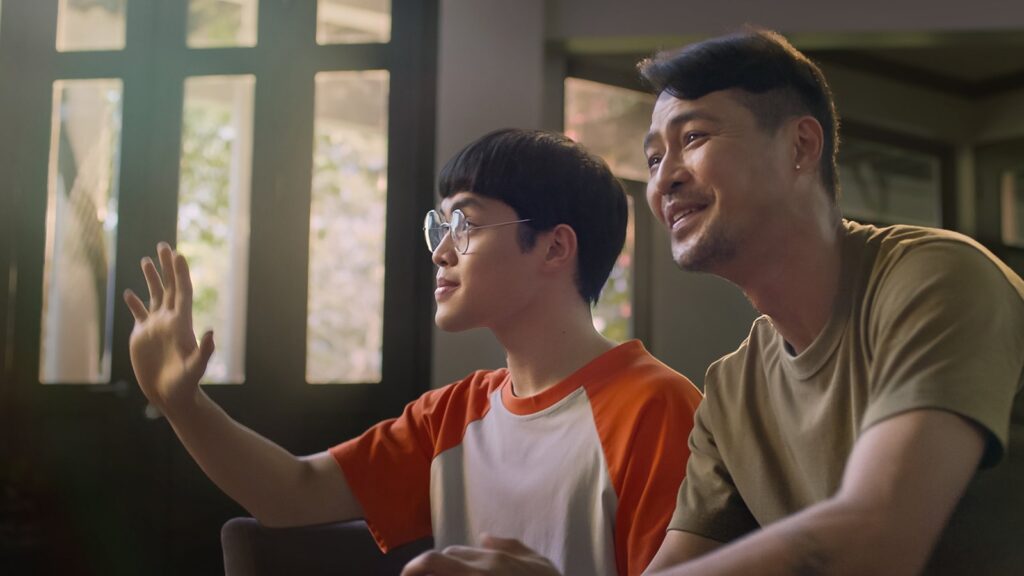The Netflix original film Keys to the Heart tells an unremarkable story. Blame it on the mediocre source material from which it is adapted — Choi Sung-hyun’s 2018 comedy-drama of the same title.
But what is remarkable in this Filipino remake is director Kerwin Go’s creative reimagining. The original Korean film dragged and was stuffed with fluff. Here, Go and screenwriter Pam Miras managed to deliver a more focused, concise film, with lively and more dynamic storytelling.
The story follows a washed-up, aging and unlikable boxer, Joma (Zanjoe Marudo), who is forced to reunite with his estranged mother (Dolly De Leon) and brother with autism, Jayjay (Elijah Canlas), a musical savant.
The grumpy Joma, imprisoned by his childhood trauma and intense resentment toward his mother, has to learn to get along with this “unwanted’ family while planning his escape to Canada. But life has different plans for Joma and his “instant” family.
The film is visually gorgeous, courtesy of nifty editing, tasteful locations and a pretty color palette. It is very “Netflix”— a colorful mainstream VOD or television movie, an ideal pick for an evening bonding with your family.
The gorgeous opening montage alone speaks of the production’s quiet elegance and strong command of the moviemaking craft.

While it is disappointing that it is an adaptation rather than an original story, Keys to the Heart still proves that we have terrific actors and competitive technical capabilities.
The performances of the main cast — Marudo, De Leon and Canlas — are beautifully nuanced and restrained. De Leon is a pleasure to watch (especially after her miscasting in the recent A Very Good Girl) in her role as a gentle, remorseful and kind-hearted mother.
But Canlas is once again a revelation. The prolific method actor disappears into his role as a boy with autism, his mannerisms and behavior consistent all throughout: the face-touching, the head-slapping, the lack of eye contact and convincing facial expression.
Canlas also trained in classical piano lessons for the challenging role. Given that the actor is not a master pianist, the camera frequently avoids excessive focus on his hands on the keys, which somehow takes away the feeling of watching a prodigy. Still, you root for his character.
Althea Pinzon, who plays Jayjay’s best friend Apple, is also a delight, much more likeable than the cringe-y seductress in the Korean original. Pinzon’s Apple is more than an accessory, but a welcome support to the movie.
Consistency is the key to the triumph of this remake. Go never loses focus on what makes his characters and their respective traumas distinct from one another.
You empathize with Joma’s anger and deep wounds, and also feel his mother’s herculean efforts to win back his son’s love. You can’t wait for Joma to finally soften and forgive his mother for her decisions in the past.
The humor is funny, particularly how a social-media video “revenge” comes full circle in the end, with the nasty boxer Elimar (Mark Striegl) providing the most satisfying wobbly, shaky, hilarious “dance” inside the boxing ring before falling unconscious.
The movie is light, predictable, and the family drama on forgiveness and redemption could only mildly twist the heart. It also has a couple of supporting actors that deliver subpar performances.
Jayjay’s often mysterious disappearances, meanwhile, happen too fast to be realistic, as if he has the ability to magically reappear in a faraway location.
But these are minor complaints. The journey toward the end is overall engaging, fast-paced, taut, and not too saccharine.
3 out of 5 stars / on Netflix
